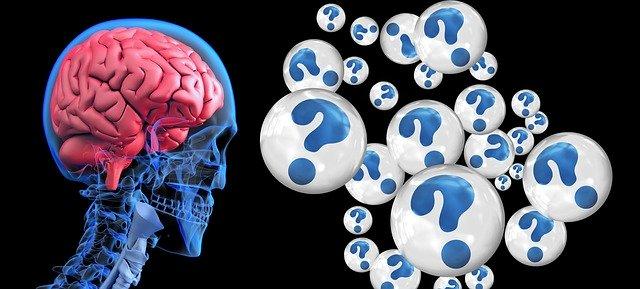
Contents [show]
What is dementia?
Dementia is a syndrome that is characterized by the progressive deterioration of cognitive functions. Including memory, reasoning, language, and social skills, to the point of interfering with the patient’s normal life activities.
Dementia is not a disease in itself, but a term that encompasses a set of neurological signs and symptoms that can be caused by several different neurodegenerative diseases. The most famous of which is Alzheimer’s Disease, which is responsible for more than 60% of cases.
Although dementia becomes more common as people age. Up to half of the people over 85 have some degree of this condition. The disease can by no means be considered a normal part of aging. The human being can live perfectly until more than 90 years without showing any sign of dementia.
Worldwide, around 50 million people have dementia. One of the main causes of disability and dependency among the elderly. In the population over 60 years old, about 5% have criteria for the diagnosis of the disease.
The elderly patient with dementia often labeled by the lay population as sclerotic, gaga or lapsed. These terms pejorative and should not be used to describe the patient’s condition.
Read Also: Some Useful Tips to Avoid Diseases
How it appears
Dementia is caused by damage to brain cells, preventing communication between them. When neurons are unable to communicate normally, thinking, behavior and feelings can be affected.
The brain is divided into several distinct regions. Each of which is responsible for different functions, such as memory, judgment, and movement.
Different types of dementia are related to different types of damage to neurons in different regions of the brain.
For example, in Alzheimer’s disease, high levels of certain proteins, mainly beta-amyloid and tau, accumulate in and out of brain cells causing their degeneration and death.
The cells of the hippocampus, the region of the brain that is the center of learning and memory, are usually the first to be damaged. Therefore, memory loss is often one of the first symptoms of dementia from Alzheimer’s disease.
Dementia, therefore, usually arises whenever there is a degenerative process of neurons that prevents communication between brain cells and leads, in the long run, to atrophy and death of brain tissues.
Causes
There are several causes of dementia, the main ones are:
- Alzheimer’s disease
- Vascular dementia
- Dementia with Lewy bodies
- Frontotemporal dementia (Pick’s disease)
- Parkinson’s disease
- Repetitive head trauma
- Alcoholism
- Huntington’s disease
- Creutzfeldt-Jakob disease
The first five diseases listed above are responsible for more than 90% of diagnosed cases.
Alzheimer’s disease
Alzheimer’s disease is the leading cause of dementia in the world, accounting for 60 to 80% of all cases.

Although not all causes of Alzheimer’s disease are known. But we know that the disease has a genetic influence and occurs by the formation and agglomeration of neurons in beta-amyloid protein plaques and fibrous tangles of tau protein. Both protein structures damage healthy neurons and their connections.
Read Also: 10 negative effects of stress on your health
Vascular dementia
Vascular dementia is the second most common cause and involves neurological damage by multiple and small cerebral infarctions.
In contrast to strokes, which usually occur when important brain vessels are obstructed. Vascular dementia arises as a result of the progressive accumulation of small infarctions over time, caused by the obstruction of small vessels.
The risk factors are the same as for stroke: diabetes, high blood pressure, high cholesterol, smoking, etc.
It is quite common to find patients with vascular dementia and another cause at the same time, such as Alzheimer’s disease. These conditions are called mixed dementia.
Read Also: Facts to Know about BPH and Benign Enlargement of Prostate gland
Dementia with Lewy bodies
Lewy body dementia is also a form of dementia caused by abnormal protein structures, called Lewy bodies, that form within brain cells.
In addition to cognitive changes, the disease also causes visual hallucinations, sleep disturbances and symptoms similar to those of Parkinson’s disease, such as tremors, stiffness, and difficulty in moving.
This form of dementia is more common in patients over 75 years of age and corresponds to about 10% of cases.
Frontotemporal dementia
Frontotemporal dementia also called Pick’s disease. It is a form of dementia that, as its name suggests, involves the degeneration of neurons in the frontal and temporal lobe of the brain. Abnormal protein deposits are also involved in the pathogenesis of this disease.
As these brain areas affected are those related to behavior, personality, and language. The initial symptoms usually include disinhibition, loss of judgment, impulsivity, distraction, social withdrawal, stereotyped behavior and changes in speech.
Parkinson’s disease
Parkinson’s disease characterized by the involvement of neurons that control movement. Over the years, however, areas related to cognition also tend to be affected. Which is why dementia is one of the signs of advanced disease.
Recurring head injuries
Recurrent lesions of the skull can cause a condition known as chronic traumatic encephalopathy, which is a form of dementia-related to multiple head injuries.
Sports athletes with high physical contact are in the highest risk group, including football, boxing and ice hockey.
Alcoholism
Alcoholics often have severe nutritional deficiencies. With a lack of thiamine (vitamin B1) being one of the most important and common.
Prolonged thiamine deficiency causes permanent damage to neurons and triggers dementia called Korsakoff syndrome.
Korsakoff’s syndrome characterized by apathy and changes in recent memory. [1]
Reversible causes
Dozens of other illnesses and conditions can lead to dementia, including infections of the central nervous system, autoimmune diseases, and metabolic disorders.
In many of these causes, dementia can be reversed by treating the underlying disease.
Among the main causes of reversible dementia we can mention:
- HIV- associated neurocognitive disorder
- Multiple sclerosis
- Normal-pressure hydrocephalus
- Subdural hematoma
- Heavy metal poisoning
- Severe hypothyroidism
- Neurosyphilis
Symptoms
Different forms of dementia can present with different types of signs and symptoms. Two patients with the same form of dementia may also have very different clinical conditions.
The demented patient is not usually able to recognize the symptoms themselves. It is usually the family and close friends who notice the changes.
As the disease has a gradual onset, the recognition of symptoms usually takes time. It is very common for the family at first to incorrectly assign the initial signs to the normal aging process.
Often, only when the patient stops driving, unable to control the finances of the house, no longer able to take the medications correctly without help or lost when leaving the house that the closest people recognize that something else seriously taking place.
The number of symptoms, impaired functions and the speed with which the disease progresses can vary greatly from one person to another. In some, severe dementia occurs within five years of diagnosis. For others, progression to more advanced stages may take more than 10 years.
Read Also: Heart Rate: What Is It and How To Monitor It?
In general, dementias have three major groups of symptoms:
- Cognitive changes
- Memory loss
- Difficulty communicating or finding words
- Loss of orientation in space, causing the patient to get lost even in known places
- Loss of orientation over time, making the patient does not know what day, month or year he is
- Difficulty in dealing with complex tasks
- Difficulty in planning and organizing
- Confusion and disorientation
- Difficulty reasoning or solving problems
Psychological changes
- Personality changes
- Depression
- Anxiety
- Inappropriate behavior
- Paranoia
- Shaking
- Hallucinations
Motor changes
- Loss of motor coordination
- Difficulty performing usual tasks, such as eating, dressing or showering alone
- Urinary or fecal incontinence
- Tremor (it is not a typical symptom of dementia, but it is present in several of its causes)
Memory loss is the most common and most characteristic symptom of dementias. In the vast majority of cases, the complaint of memory loss not reported by the patient himself, but by his friends and family.
Self-reported memory loss, that is, that reported by the patient himself, does not appear to be related to the subsequent development of dementia.
On the other hand, when memory loss is a symptom that draws the attention of people around the patient. This is often a strong indication of a cognitive problem.
Memory deterioration occurs slowly and progressively. Initially. The patient just forgets something simple and unimportant. Over time, recent events and new information are easily forgotten. The patient can tell the same story over and over again because he does not remember having told it before.
In more advanced stages, the demented patient may not even be able to recognize their family members anymore.
Read Also: Agoraphobia: Causes, Symptoms, Types, and Treatments
Diagnosis
No test or exam alone can diagnose dementia and its cause.
To diagnose dementia and identify the type, the doctor uses the physical examination and the patient’s medical history, in addition to the family’s impressions.
There are standardized cognitive tests to assess the degree of difficulty of a person with different types of problems. The best known is the mini-mental. A questionnaire in which the following characteristics assessed:
- Space-time orientation (ability to recognize where you are and what date you are)
- Capacity for attention, concentration, and memory
- Ability to abstract and perform simple calculations
- Language and visual-spatial perception
- Ability to follow basic instructions
These tests help in the diagnosis and serve to monitor the progression of the disease over the years.
Blood tests usually are done, to rule out other illnesses that may mimic dementia or to diagnose treatable causes, such as infections or metabolic or hormonal changes.
Brain imaging tests, usually MRI scans, often performed to identify secondary causes of dementia, such as stroke, bleeding, hydrocephalus, infections or tumors.
Treatment
The most appropriate treatment for dementia depends on its cause.
In treatable causes, as are the cases of patients with HIV, severe hypothyroidism, neurosyphilis, hydrocephalus, etc. The treatment must focus on the diseases themselves, and not on dementia. It is only a consequence of the underlying disease.
In cases of vascular dementia, the control of risk factors is important to limit the progression of the disease. Avoiding cigarettes and alcoholic beverages, controlling weight, blood pressure, diabetes, and cholesterol are essential.
In the vast majority of cases, dementia has no cure. In these patients, treatment aims to control symptoms.
Most drugs developed to treat Alzheimer’s disease, but they can also be used for other types of dementia.
Medicines
The drugs most used to treat dementias are:
- Donepezil.
- Rivastigmine.
- Galantamine.
- Memantine.
Of these 4 drugs, memantine is the only one that seems to have some degree of protection against the progression of the disease. Even so, this effect is not very relevant.
In practice, treatment not aimed at curing or preventing disease progression, but rather to relieve symptoms and improve the quality of the patient’s pathway.
These drugs act preferentially on symptoms related to memory loss.
The doctor may also prescribe specific medications to treat other symptoms associated with dementia, such as depression, sleep disorders, hallucinations, parkinsonism or restlessness.
Treatments without scientific proof
Several types of drugs and substances already tested in the treatment of dementia. Few showed any evidence of effectiveness in the studies.
Below we list some treatments that do not show efficacy proven by clinical studies in the treatment of dementias:
- Statins
- Omega 3
- Ginkgo Biloba
- Estrogen replacement
- Anti-inflammatory
- Vitamin replacement (except vitamin E)
The administration of 2000 IU vitamin E is the only one that has some support in the scientific literature. Although there is still no large and definitive study. Small clinical trials seem to show a small benefit with vitamin E supplementation.





Comments are closed.